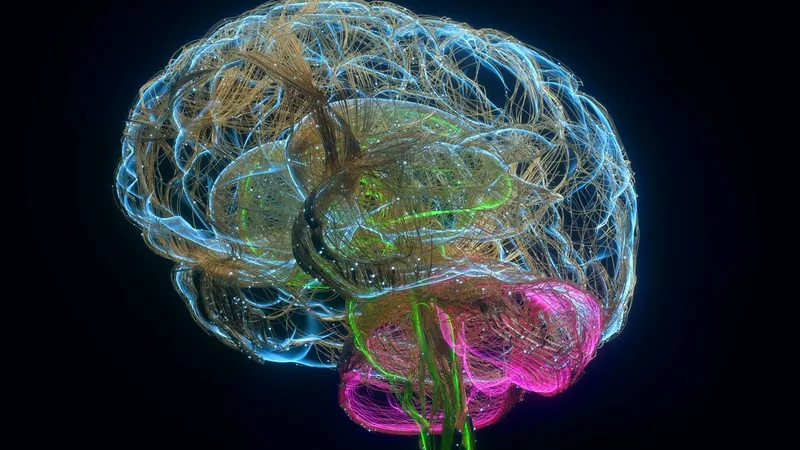
Could Gut Microbiome Be the Key to Understanding Human Brain Evolution?
2024-12-06
Author: Yu
Recent research suggests that the diverse community of microbes residing in our gut, known as the gut microbiome, may have played a significant role in the development of the large human brain. This groundbreaking study provides insights into the possible connection between gut health and cognitive function, implying that our ancestry's tiny microbes could be the unsung heroes behind our impressive mental faculties.
Link Between Gut Microbiome and Brain Evolution
Katherine Amato, an associate professor of biological anthropology at Northwestern University, noted that breakthroughs in microbiome studies are revealing how the gut and the brain communicate, influencing behaviors and overall wellbeing. "However, this study extends our understanding by suggesting that our gut could have been fundamental in forming our brain's evolutionary path," Amato explained.
Key Findings from the Study
The study, primarily conducted on mice, indicated that gut microbes from larger-brained primates, specifically humans and squirrel monkeys, were able to convert food into energy for the brain with remarkable efficiency. The researchers found that these mice consumed more food yet exhibited slower growth and less fat accumulation compared to those with gut microbes from macaques, smaller-brained primates. This revelation implies that gut microbes might encourage their hosts to consume more while directing surplus energy toward brain development.
Research Publication and Methodology
Published on December 2 in the journal *Microbial Genomics*, the research analyzed how the introduction of different gut microbiomes affected the mice's physiology. Mice with larger-brained primate gut microbiomes generated more glucose, the critical energy source for neural function, supporting the idea that evolutionary changes in our microbiome could have been essential to sustaining our growing brains.
Cautions and Future Research
Nevertheless, the researchers emphasize that much remains to be uncovered about the specific mechanisms linking gut microbiota and brain size. "While our findings are compelling, they represent merely one piece of a much larger puzzle," Amato cautioned. This research highlights the multifaceted interaction between genetics, diet, and microbiome composition, all of which influence metabolism and brain function.
Potential Benefits of Gut Microbiome
Notably, the study pointed out that mice with gut microbes from larger-brained species produced higher levels of beneficial molecules, such as short-chain fatty acids, which might play a vital role in gut-brain communication. Previous studies have established that these fatty acids can significantly impact brain physiology.
Expert Opinions
Taichi Suzuki, an associate professor at Arizona State University who was not involved in the research, praised the study for its innovative hypothesis. He indicated that this connection might help to elucidate why variation in microbiome composition could influence brain size and potentially inform us about the evolutionary trajectory of larger brains.
Conclusions and Implications for Future Research
However, Suzuki raised valid concerns about the study's scope, highlighting that it only included three primate donors with distinct brain sizes. Future research involving a broader range of species is essential to verify whether these findings hold true across the primate lineage.
As researchers continue to investigate the mysterious interplay between gut microbiota and brain evolution, one thing becomes clear: the tiny microorganisms living in our intestines could have a profound impact on our cognitive abilities. Understanding this relationship may unlock further secrets of human evolution and health, paving the way for new avenues in science and medical research. Stay tuned, as the exploration of our microbiome could reshape our understanding of what it means to be human!





 Brasil (PT)
Brasil (PT)
 Canada (EN)
Canada (EN)
 Chile (ES)
Chile (ES)
 España (ES)
España (ES)
 France (FR)
France (FR)
 Hong Kong (EN)
Hong Kong (EN)
 Italia (IT)
Italia (IT)
 日本 (JA)
日本 (JA)
 Magyarország (HU)
Magyarország (HU)
 Norge (NO)
Norge (NO)
 Polska (PL)
Polska (PL)
 Schweiz (DE)
Schweiz (DE)
 Singapore (EN)
Singapore (EN)
 Sverige (SV)
Sverige (SV)
 Suomi (FI)
Suomi (FI)
 Türkiye (TR)
Türkiye (TR)